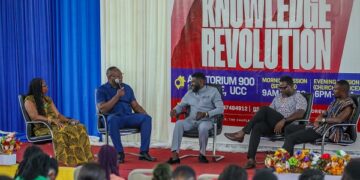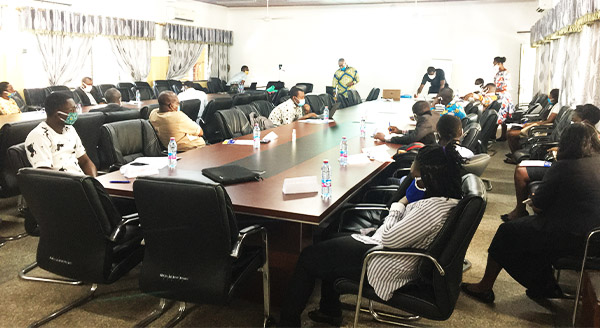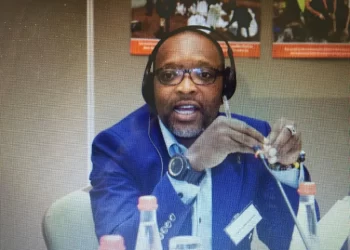The Building Expertise and Training for Growth (BET) Ghana yesterday held a multidisciplinary workshop for stakeholders in the food processing and consumer goods industry with a call on academia to embrace a holistic approach to research.
The workshop was on the theme, Approach to Applied Mixed Research in the Multidisciplinary Space: The Case of Food Processing and Consumer Goods.
Over the years academic research works have not made so much impact in the society because it is done in silos. Dr. Robert Sarpong Amoah with the department of Agricultural Engineering, and also a facilitator at the event believes it is important for the university to establish a common platform to holistically discuss problems.
He said although the University of Cape Coast has the Directorate of Research Innovation and Consultancy (DRIC) which is a lead platform that brings together experts there is the need to create more of such platforms.
“For our research to have a holistic greater impact, we need to have a holistic view of the problem and to develop a global solution to these issues and I think that as a university we need to establish such a common platform because if we work in silos we wouldn’t have a holistic understanding of the problems and we wouldn’t be able to make much impact with our research”, he said.
BET Ghana is a transdisciplinary research and transfer project between the University of Applied Sciences, Germany, the University of Cape Coast and partners from the consumer goods and food processing industries in Germany/Europe and Ghana.
The stated overall project goal is to enhance employability and (self-) employment opportunity to students and graduates specifically in the Ghanaian consumer goods and food processing industry.
Team Coordinator of the BET Ghana, Prof Daniel Agyapong, who spoke in an interview with ATL FM News on the sidelines of the event, indicated that the workshop was necessary to help lecturers inculcate in students, multidimensional approach to problems.
According to Prof Agyapong a lot of research indicate that the way students are trained is dependent on the kind of researches and knowledge teachers acquire, hence, the need to widen the scope of discussing the problems.
“The idea of setting on a multidisciplinary approach indicate that once lecturers have this idea of the fact that in terms of training, we need to look at several different aspects of it, once they have that and they conduct research in those areas then they can inculcate in students especially what industries require”.
Prof Agyapong, who expressed satisfaction at the progress of the workshop said he is hopeful the participants of the workshop will be the network for an interdisciplinary group for research work.
“It is obvious we have been living in silos but problems in the real world are not in silo. I felt and I saw more of the willingness on the part of colleagues to work together in developing our students. The resolution is that those who were in here going to now form the basis of what we are describing as the network for interdisciplinary group that is going to commission research work.”
The workshop sought to promote interdisciplinary applied research in consumer goods and food processing at UCC. Participants for the workshop were drawn from all faculties in the University of Cape Coast.
Victoria Enyonam Adonu / ATL FM News



























